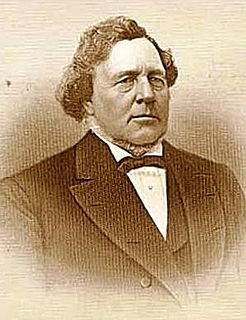A Quote by John Lubbock
It is sad, indeed, to see how man wastes his opportunities. How many could be made happy, with the blessings which are recklessly wasted or thrown away.
Related Quotes
The first man . . . ventured to call food and nourishment the parts that had a little before bellowed and cried, moved and lived. How could his eyes endure the slaughter when throats were slit and hides flayed and limbs torn from limb? How could his nose endure the stench? How was it that the pollution did not turn away his taste, which made contact with the sores of others and sucked juices and serums from mortal wounds?
Indeed, we need not look back half a century to times which many now living remember well, and see the wonderful advances in the sciences and arts which have been made within that period. Some of these have rendered the elements themselves subservient to the purposes of man, have harnessed them to the yoke of his labors and effected the great blessings of moderating his own, of accomplishing what was beyond his feeble force, and extending the comforts of life to a much enlarged circle, to those who had before known its necessaries only.
It was an unforgettable picture to see Chopin sitting at the piano like a clairvoyant, lost in his dreams; to see how his vision communicated itself through his playing, and how, at the end of each piece, he had the sad habit of running one finger over the length of the plaintive keyboard, as though to tear himself forcibly away from his dream.
I thought that it's so sad there are people who live their entire lives lonely. They die and no one goes to their funeral. I thought about how sad that was and how so many people out there have that path. I know this sounds weird, but if I could go take their bones back to my house and appreciate them for what they are, it would be my way of taking that loneliness away.
How often, you wonder, has the direction of your life been shaped by such misunderstandings? How many opportunities have you been denied--or, for that matter, awarded--because someone failed to see you properly? How many friends have you lost, how many have you gained, because they glimpsed some element of your personality that shone through for only an instant, and in circumstances you could never reproduce? An illusion of water shimmering at the far bend of a highway.
Can any man say with certainty that he was happy at a particular moment of time which he remembers as being delightful? Remembering it certainly makes him happy, because he realizes how happy he could have been, but at the actual moment when the alleged happiness was occurring, did he really feel happy? He was like a man owning a piece of ground in which, unknown to himself, a treasure lay buried.
Man is made of opinions,—of truth and error; and his life is a warfare like all other lives before him.... Man goes on developing error upon error till he is buried in his own belief.... It is the office of wisdom to explain the phenomena in man called disease, to show how it is made, and how it can be unmade. This is as much a science as it is to know how to decompose a piece of metal.
The Soul which is approaching its' liberation, as it looks back over past lives... down the vistas of the centuries along which it has slowly been climbing,... is able to see there the way in which the bonds were made, the causes which set it in motion. It is able to see how many of those causes have worked themselves out and... how many... are still working themselves out.












































